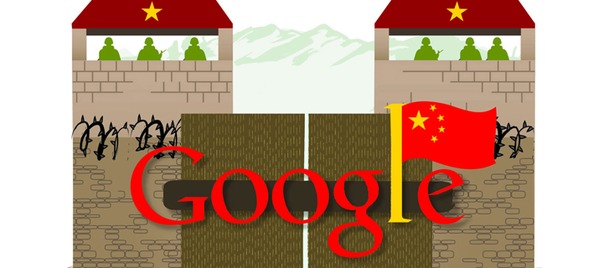If You Think We Have It Bad
In recent years people have decried the surveillance culture in Britain, suggesting that the current government are quite authoritarian in their approach. As this isn’t an opinion piece, we’re not going to comment, other than to say at least we’re not living in some other parts of the world.The most obvious contender for a repressive Internet regime is China. This isn’t particularly surprising for a country that has, in recent memory, deployed the army against those who speak ill of the ruling party. Its stringent level of Internet censorship and monitoring is collectively referred to as The Great Firewall of China.
Unlike the original Great Wall which was designed to keep out marauding Mongolians and provide something awesome for spacemen to look at, the Great Firewall effectively blocks the people of mainland China from getting access to a selection of websites located elsewhere in the world – hence its role is to keep things in rather than out. The more overt measures of the Great Firewall consist of direct censorship of words that can be entered into search engines. Perhaps the most striking difference between the Internet as available to mainland China and that which we are familiar with is their ban on porn, something which makes up a pretty hefty chunk of Western Internet commerce and traffic.

Image from Flickr user phauly
It’s easy to point at the evils of the Chinese dictatorship, but the idea of a Great Firewall is not without its fans in supposedly sane democracies too. A not entirely dissimilar project was mooted in Australia in 2008 under the name of the 'Cyber Safety Plan'. This AUS$125.8 million initiative is a four year plan covering a “comprehensive range of cybersafety measures, including law enforcement, filtering and education.”
The reasoning behind the filtering? “The policy reflects the view that ISPs should take some responsibility for enabling the blocking of 'prohibited' material on the Internet, as they do in a number of western, developed countries.” Australian communications minister Stephen Conroy told the BBC that “although the Internet has opened up a world of possibilities and benefits for Australian children, it has also exposed them to continually emerging and evolving dangers that did not previously exist,” and the Government announced it would be trialling filtering products.
However, it seems in recent months to have slid off the rails due to technical problems and could possibly be stalled completely. That said, Australia still has some of the toughest censorship in the free world, and even sites such as Wikileaks (https://secure.wikileaks.org/wiki/Wikileaks) fall foul of the blacklist the proposed filtering system will use. While Wikileaks is a site that does contain information that perhaps was not intended to fall into the public domain can it be said that such sites actually warrant blocking? Is there a line being crossed when governments censor sites not for adult or offensive content, but because of damaging information they hold?
It seems apparent that across the world, governments and corporations are trying to establish some measure of control over the Internet, but it’s equally apparent that it’s not a process that is going easily for them. This can only be a good thing. The line between freedom and authoritarianism cannot simply be drawn and then expected to last forever, it exists in a constant state of negotiation. The freedom of the Internet was not won by protests like votes for women or the end of slavery – it began as a free space – whether it stays that way or not is up to us.
Front page and index images taken from a photo by Flickr user Paul Keleher.

MSI MPG Velox 100R Chassis Review
October 14 2021 | 15:04









Want to comment? Please log in.